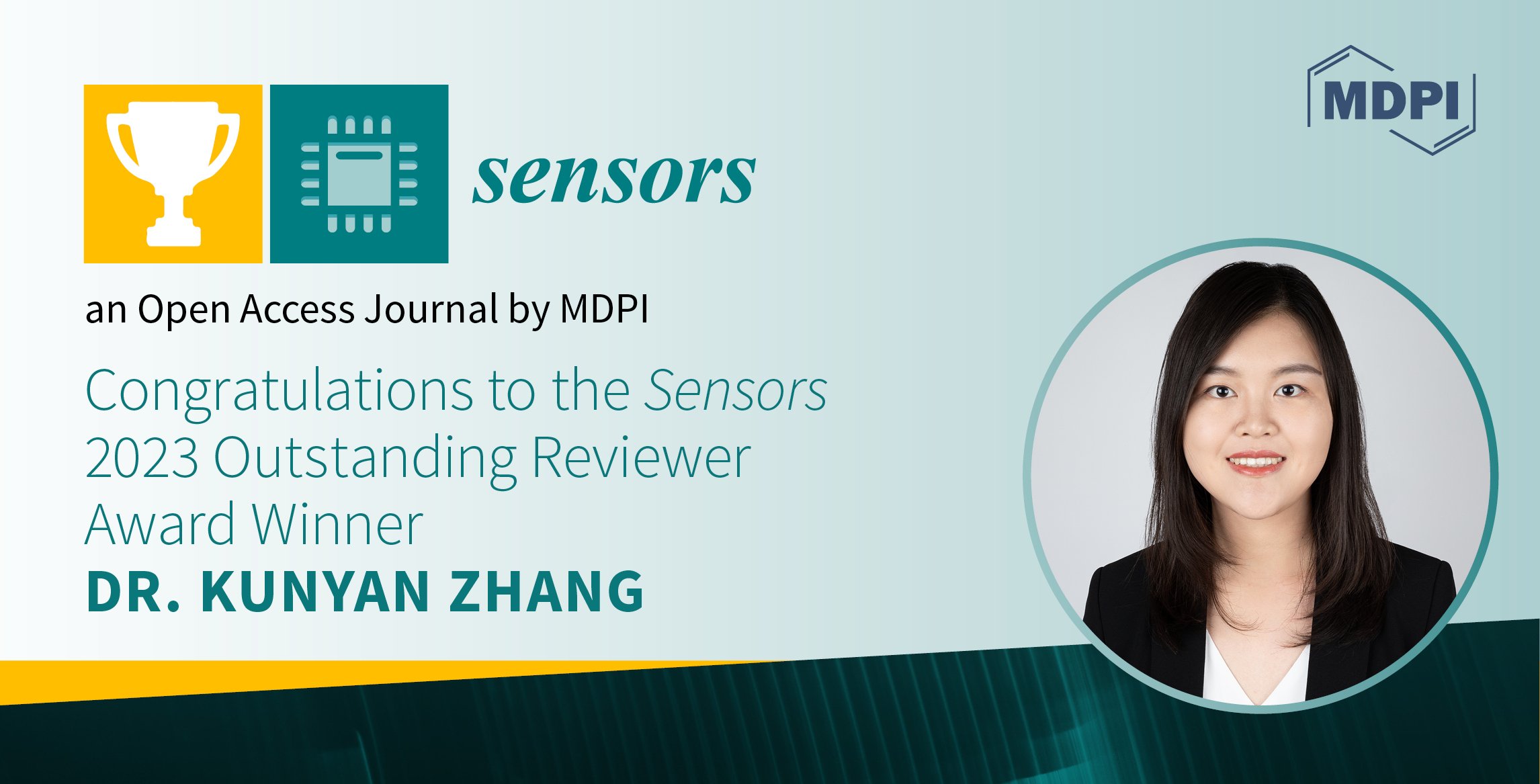
Interview with Dr. Kunyan Zhang—Winner of the Sensors 2023 Outstanding Reviewer Award
We recently reached out to Dr. Kunyan Zhang, winner of the Sensors 2023 Outstanding Reviewer Award, to discuss both her scholarly insights and her journey as a reviewer for Sensors.
Name: Dr. Kunyan Zhang
Affiliation: Department of Chemistry, University of California, Berkeley, CA 94720, USA
Research Interests: low-dimensional materials; optical spectroscopy; biosensors; machine learning
The following is an interview with Dr. Kunyan Zhang:
1. Can you give us a brief introduction of yourself and the main research content of your current research? Additionally, could you share some emerging research directions in this field?
I am currently a postdoctoral researcher at the University of California, Berkeley, USA. My research focuses on understanding the light–matter interactions in nanoscale systems using ultrafast spectroscopy to develop new sensing paradigms. One of the emerging directions in the field of optical sensing is the integration of artificial intelligence for spectral analysis. The emergence of advanced machine learning models has brought breakthroughs for improving automated multimodal sensors based on optical spectroscopy. In addition, incorporating new nanomaterials with enhanced optical properties has also been proven to boost the performance of optical sensors.
2. When and how did you first become aware of the open access Sensors journal? How do you think open access impacts authors?
I became aware of the Sensors journal during my Ph.D. studies from reading a publication from Sensors. As an open access journal, Sensors offers researchers unrestricted access to exciting research findings. This can significantly enhance the visibility and impact of the outcome and potentially foster broad collaborations.
3. What are the key factors and aspects that you consider most when reviewing a manuscript?
The novelty of the research, the rigorousness of the methodology, the scientific soundness of the conclusion, and the impact on the communities. These are the key factors essential to a good academic paper. The authors should be able to identify major challenges in the field and provide solutions to facilitate tackling these challenges.
4. What are the key factors that make a review outstanding?
The review process is not solely about criticizing. More importantly, it is about giving constructive and balanced feedback after a thorough review of the manuscript. An outstanding review would give a high-level summary of the strengths and weaknesses of the study and offer specific suggestions for improvement. Therefore, it is crucial that reviewers have the necessary expertise in the respective research areas.
5. What do you think of receiving the Outstanding Reviewer Award? What advice do you have for future reviewers?
It is a great honor for me to receive the Outstanding Reviewer Award. This is a recognition of my contribution to the peer review in terms of the quality and quantity of review comments. As a young scholar, I have learned a lot from the reviewing process and from working with editors. My advice to someone starting their journey as a reviewer is to be fair and supportive in their critique, aiming to help authors improve their work meaningfully.
I would like to highlight the exceptional efficiency of the MDPI review platform. It is designed to streamline the submission and review process to allow for quick turnaround time. The MDPI review platform also provides clear guidelines and status updates throughout the review process.